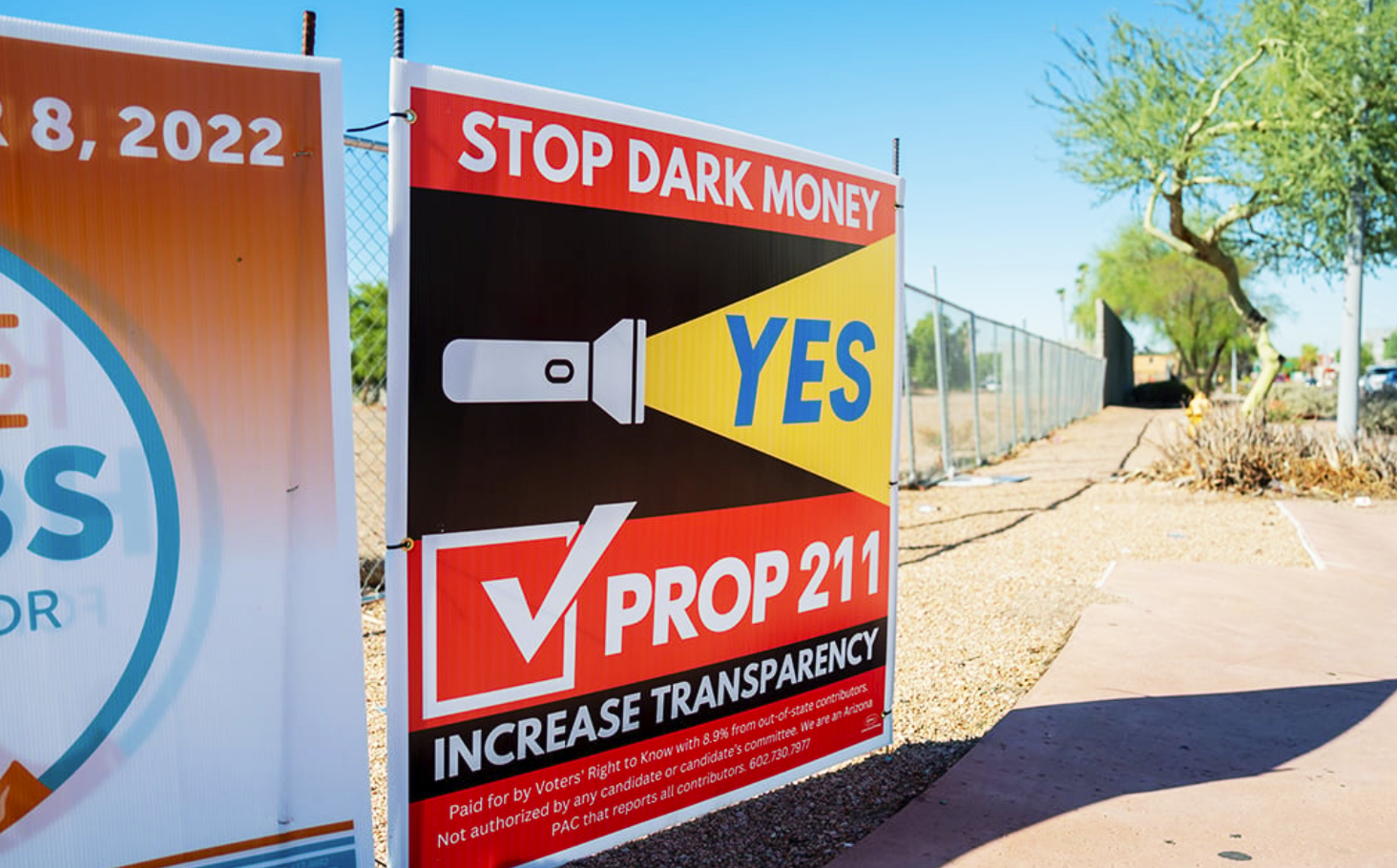A sign in favor of Proposition 211, which voters passed overwhelmingly in November. The law, requiring new transparency in the sources of funding for political campaigns, is being hailed as a model for other states by advocates, criticized as a threat to free speech by opponents.File photo by Samantha Chow || Cronkite News
Ray Stern
Arizona Republic
An Arizona judge rejected the arguments of two conservative groups that sued to stop a successful voter initiative requiring disclosure of campaign “dark money” and dismissed the case.
In the ruling released Thursday, Maricopa County Superior Court Judge M. Scott McCoy left only a narrow opening for the Center for Arizona Policy and Arizona Free Enterprise Club to convince him of their arguments, giving them until July 7 to file an amended complaint based on a long-shot legal theory.
Whether the plaintiffs’ Goldwater Institute lawyers choose to file another complaint by that time, they could still appeal the decision. But McCoy’s ruling shows the groups have big hurdles to overcome.
“It is a very unequivocal opinion,” said former state Attorney General Terry Goddard, who led the anti-“dark money” campaign. “Basically he’s saying, ‘There’s nothing here — you’re dismissed.'”
The law — now in effect — requires any entity, including political parties, that spend $50,000 in statewide campaigns, or $25,000 in local campaigns, to track and disclose the identities of anyone spending $5,000 or more on campaign ads and many other kinds of “public communication,” even when the money is passed through intermediaries like a nonprofit group. Exceptions exist for news articles and opinion columns, debates, books and nonpartisan voter-registration drives.
Before the election, opponents of the measure tried and failed to stop it from appearing on the ballot. Voters subsequently approved Proposition 211, the “Voters’ Right to Know” act by 72%-23% in November. The two conservative groups filed a lawsuit soon after, arguing that the measure violated the Arizona Constitution’s right to free speech and right to privacy.
What the judge said in his ruling;








